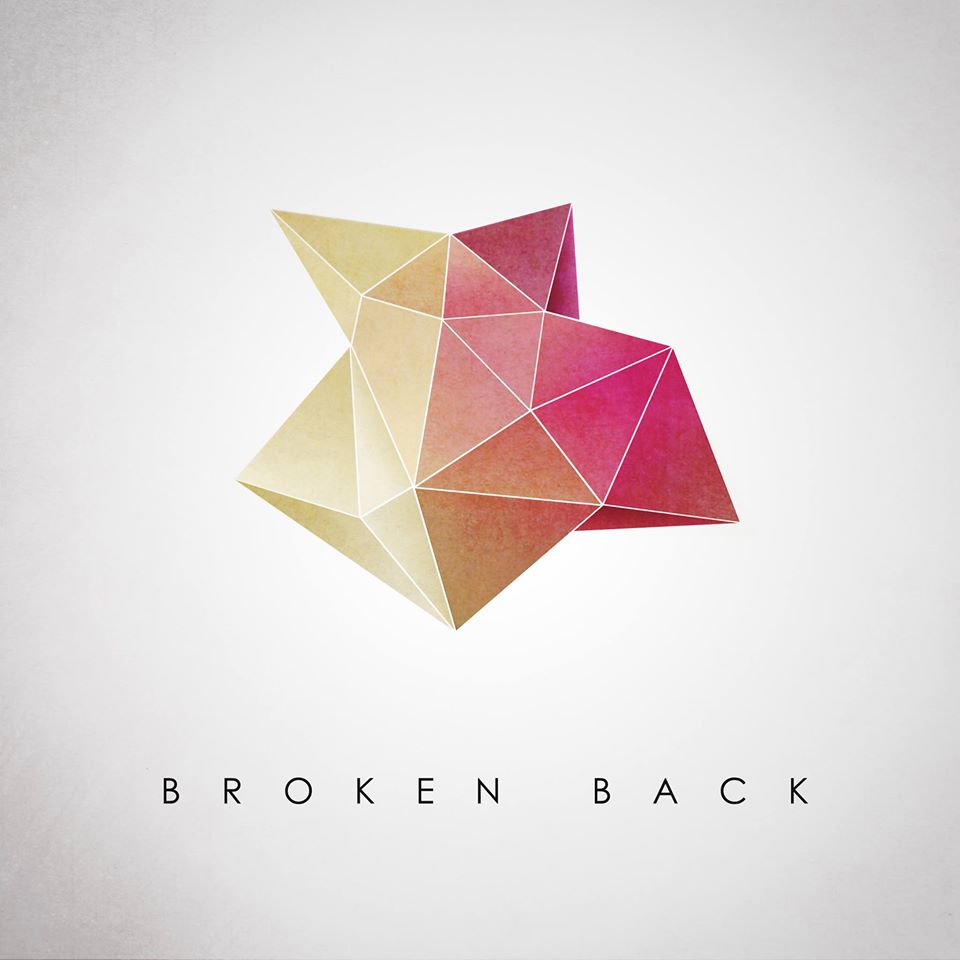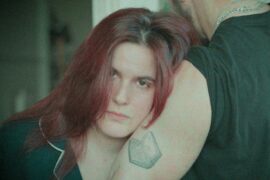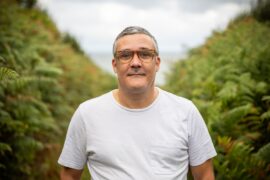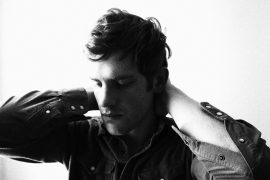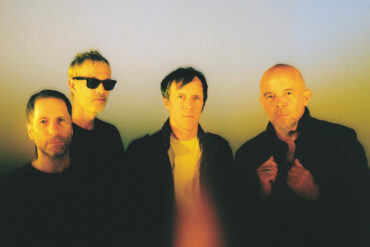Australia’s Hellions discuss recording in Thailand, Eminem lyrics, and emotions in Atwood Magazine’s new exclusive interview!
— —
Australia’s Hellions are the perfect depiction of versatility. They blend hard rock, pop, and rap in seamless transitions. Their newest album Rue (available October 19 via independent record label UNFD) is both heartfelt and energetic. Following the band’s dramatic Opera Oblivia, Rue continues the eclectic theatricality for which its predecessor set the standard. We spoke with drummer and vocalist Anthony Caruso about Rue, song series, and Thailand.
:: stream / purchase Hellions’ Rue here ::
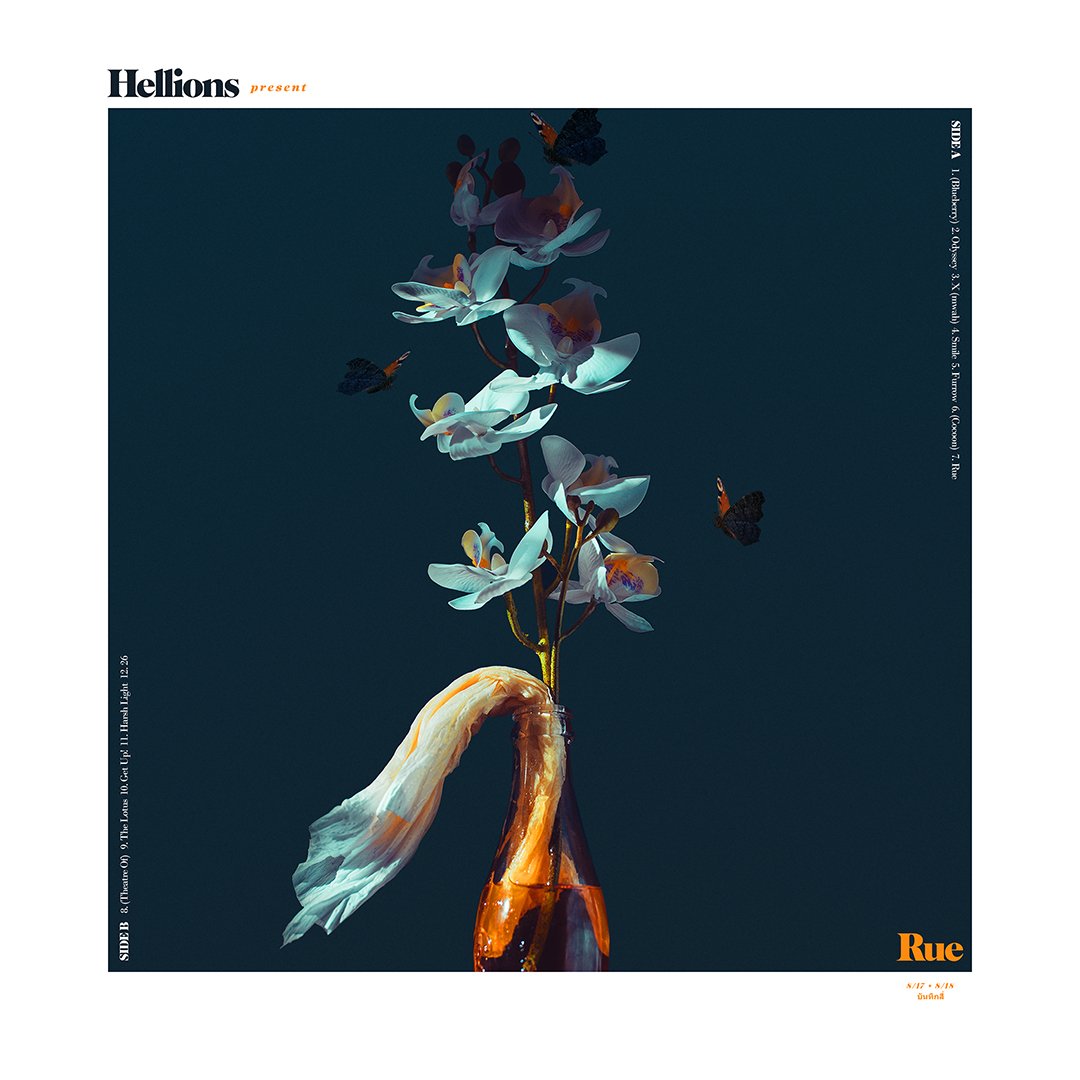
Rue – Hellions
A CONVERSATION WITH HELLIONS
Atwood Magazine: I wanna get this out of the way: the name Hellions - is that a Judas Priest reference?
Anthony Caruso: No, it’s actually not. We could say it is. The name actually came from an Eminem song, funnily enough. “The little hellions/kids feeling rebellious,” was a line in one of his songs.
That's “Fight Music,” right? (edit: It’s actually “Without Me.”)
Caruso: I think so. Actually I can’t remember exactly what song it’s from now.
I know the line you're talking about, though.
Caruso: It just kind of came. When we transitioned from our old band [The Bride] we were just tossing around names and I think it was actually Dre [Faivre], our vocalist, who came, was like, “Oh, what about Hellion?” I think he said Hellion. And we were like, “What about Hellions?” And yeah. And that’s where that came from. Yeah, yeah. I’d say Eminem was probably the one that helped us come up with that one.
That's nice. It's a good name. It's a badass name. Tell me a little bit about the writing process for Rue.
Caruso: It was a long one. We started writing this, what? Maybe, almost, it would have to be almost two years ago. We started recording it in August of last year. Yeah. Probably about the year or so prior to that. Pretty much started it as soon as Opera Oblivia came out. Matt [Gravolin], our guitarist and other vocalist does, he just kind of locks himself away in his room throughout the week in the evenings and the weekends. And he just really goes for it. And he’ll just send the rest of the band all these random little Guitar Pro demos that he comes up. They sound like little Nintendo game midi files. And then from that point, and he, and all of us have a flood sheet whether that be in notebooks or our phones or whatever and we just write down random ideas for lyrics. Or a lot of us do what we like to refer to as mouth riffing. Where we will hum out a tune or something and record it straight into our phones. And then pass that on to Matt to actually turn into some sort of music. Then we get together and pick them apart.
The real process begins when we get to see Shane, who’s our producer, who we’ve worked with for a long time. Everything really comes together when he gets involved. He just has a way of understanding us. As far as we’re concerned no one else really does when it comes to writing and the music that we wanna make. And our skills or talents as well. He just really knows how to push us.
And, yeah. The ideas behind the record came about almost, not by accident but it came about during the process of recording. We realized there were similar themes happening through the songs. Similar opposing themes, I should say, happening throughout the songs. That shaped the overall scope of the record. And the way that we sound and stuff, that kind of comes somewhat naturally, I think. We don’t really put in too much effort into really attempting to be different or shape our sound in a certain way. It’s just what comes out is what comes out.
You don't necessarily sound like another hardcore/alternative rock band or rap-rock project. You're very much your own sound.
Caruso: I think that comes naturally. I mean, we don’t set out to go, “Right, we want to be as different as possible to everyone else.” I mean, that’s always, we do pride ourselves on that, for sure. And we are proud that we, in our opinion, we do sound quite different to everyone else. And we do have a sound that is somewhat uniquely Hellions. We just kind of rap and play what we like as a collective. And I think the reason that it’s not too specific to any sort of genre is mainly because we all have quite different tastes in in what we listen to personally. And I think that shines through once everyone has their influence on the writing.
What happens when you get to 30, though?
Caruso: That’s it. That’s when we call it quits and we, yeah. We call it a day and go back to our 9 to 5 jobs. No, hopefully not. Maybe we just have to start a 30 series. I mean, that’s making me a little bit sad to think about, to be honest. We’ll cross that bridge when we get to it.
You've got time.
Caruso: Yeah, we’ve got a little bit of time.
There definitely is a sense of theatricality that comes to your music. I'm more familiar with this album and Opera Oblivia. Where does that theatricality come from?
Caruso: I think that’s a lot of it comes from our personal taste. I myself am just a fan of theatrics. Whether that be literally theater or musicals or films. And just the music that comes with it. And the kookiness of it is what gets me. I really love that, I really fell in love with that sort of thing at a young age. And I know Matt really loves that as well. It’s something that we’ve always been into , and our first record to us, that was the first thing we ever released as Hellions. It still feels like a demo to us even though it is a full length.
The second record, Indian Summer, was more us trying to shape our sound in a way that we were all content with. Opera Oblivia is where we really tapped into it. And I think that’s because we took so much inspiration from bands like Queen and bands like My Chemical Romance. I would say you can most definitely hear their direct influence on some songs or some parts of songs at least. The biggest inspiration that we took from those bands is just their ability and their courage in taking the risks that they did in really just owning the theatrics of what they were doing.
And there are obviously a bunch of artists out there that have been doing that for a long time. But those two in particular are really big, they gave us a bit of a kick up the butt and just really inspired us to really, really own it. And shape our sound in that way. And just the overall vibe of the band was just, yeah. Taking a risk that we’re kind of like, “Oh, we’re not too sure if people will be into this but at least we’re into it.”
Absolutely. And there is sort of an undeniable emotionality and vulnerability when you get that theatrical.
Caruso: Yeah, yeah, yeah, we’re quite emotional dudes as it is. The way we’re all really close friends and we were close friends before Hellions became what it was. And I think that’s been, that’s why we’ve been able to somewhat be as honest as possible and encourage each other. Whether that be in the lyrics or just how we carry ourselves in day-to-day life. We have that emotional attachment to each other, when we’re creating, and especially when we’re in the studio, ’cause (our producer) Shane Edwards is on that sort of level as well. It just naturally shines through. The theatrics side is just cool, and probably the way that we understand how to express that best.
Absolutely. Absolutely. Going back to writing, it feels, your songs have so many different parts. There's elements of pop, modern rock, heavy metal, punk rock and rap in there. How do you merge all those parts together? Is it a natural progression to say, “Oh, we're gonna rap here and then we're gonna have a acoustic-y ballad here.”?
Caruso: We don’t. I wish it was that carefully planned. It’s not really. All of the songs that you hear on Rue took so many different shapes and forms throughout the process. What you’re hearing is potentially in some cases a version 8 of a song. They come with time and they come not necessarily screaming of this. There’s always ideas to put those parts in there. But whether or not they stick, that comes a little bit later. It’s a lot of trial and error.
I mean there’s a song like “Furrow,” for example, was that started as a five and a half or six minute just monolith of a song. It was just so long. And it, over time it felt a little bit more at home in a traditional ballad format. And we thought, stripping it back from what it was a natural and also challenging progression throughout the whole thing. And a lot of the songs ended up taking their final form in that way. “Blueberry Odyssey” was another one that had so many chops and changes throughout the whole process. I think it’s just something that we don’t particularly plan. But it just kind of happens.
My favorite song from the record is “Get Up.” Can you talk to me a little bit about that song and what it was like writing it and what it means to you?
Caruso: Yeah. That song and “Smile-“ we actually managed to con our manager and our label into letting us go to Thailand three times throughout this process. I’m not gonna pretend that wasn’t on purpose. We just absolutely love going there. On our third and final trip, which is where the record took its final form, we actually recorded “Get Up” and “Smile.” So they were late additions to the game.
“Get Up” started as just a groovy little riff and beat that Matt had come up with. It was that particular riff, which is what you hear in the verse and stuff-the main theme throughout the song. That was just something that we really loved, and whenever we heard it, we would always laugh and get excited ’cause it sounds fun. We were just all pushing so hard, pushing each other so hard to be able to make it work.
And there were a couple of points where we were like, “This is never gonna work. We’re not gonna be able to pull this one off.” We chopped and changed some old stuff and some new stuff that we had written and it eventually, finally took a shape that we’re happy with. We were really stoked with. It was just a little bit fun. That one was really fun to make that, Because it sounds quite fun, lyrically, [we] thought we’d take a little bit more of a satirical take on it. And it’s really based around Millennial fear and trying to not take yourself too seriously. And there’s some sort of relief in embracing that little bit of craziness that comes with being yourself.
Yeah. It's always best to just let everything go.
Caruso: Yeah. And we caught ourselves and we’ve caught ourselves so many times just like, really, “Wow, we’re taking ourselves and this thing, our lives way too seriously. Why are we getting upset over this sort of thing? We should just be embrace it, go with the flow.“
And Thailand's probably a good place to come to that realization.
Caruso: To go with the flow! Yeah. It’s unbelievable there. Dude, I can’t-me trying to explain it or even showing pictures to people and stuff, it does it absolutely no justice, the studio itself and Thailand as a country. I think for so long it’s been-not given a bad name-but people have their ideas in mind of what Thailand is as a country. But we have been extremely lucky to be able to see the other side and really embrace that culture, and they’ve also really embraced us. I mean, we’ve been going back there for, I think it’s been maybe over the course of six years or so. We’ve been back and forth from there.
It really does feel like another home for us. And where the studio’s located it’s a small little fishing village. You get to know all of the locals. The studio itself is really, is beautiful. It’s amazing. It’s probably the most serene environment that you could make a record in. It does get pretty intense sometimes. You get shitty with each other or at yourself and just have those creative blocks. And all it really takes is to go outside and you just like, “Wow. I’m here doing this.” And it’s just an almost instant refresh and you’re ready to go again.
Do you have anything you think that our readers and your fans should know before Rue comes out?
Caruso: Not particularly. Just maybe go in with an open mind. We’re so stoked that people even care enough to listen to it. Just a massive thank you to yourself and everyone that even gives us a smidgen of the time of their day.
— —
:: stream / purchase Hellions’ Rue here ::
— — — —
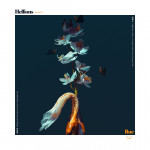
Connect to Hellions on
Facebook, Twitter, Instagram
Discover new music on Atwood Magazine
? © UNFD



